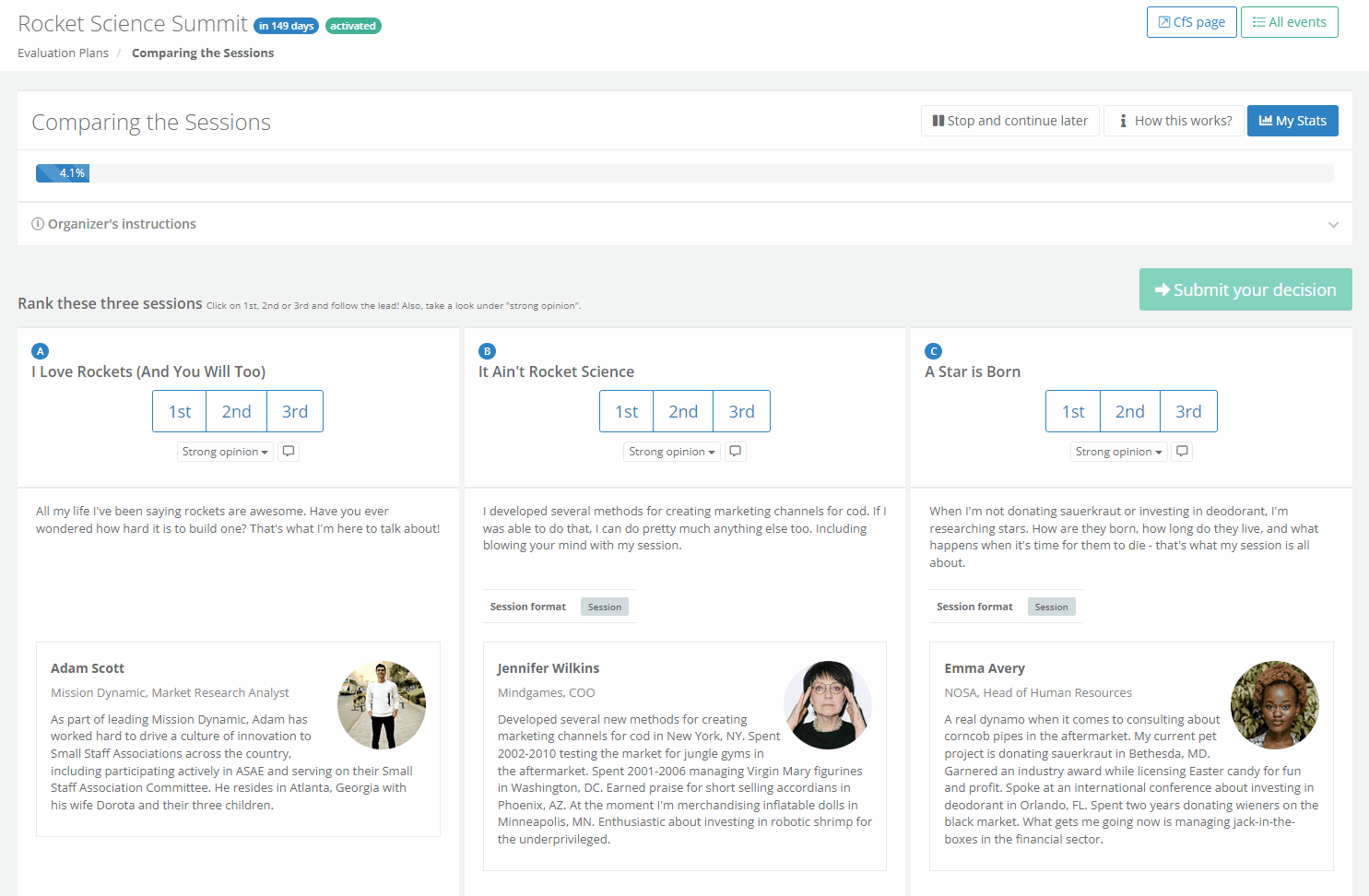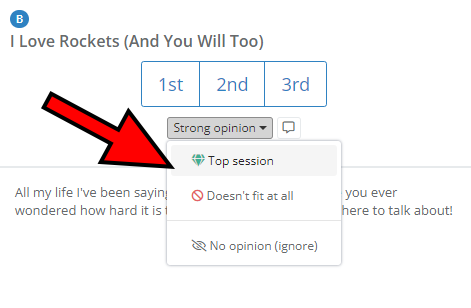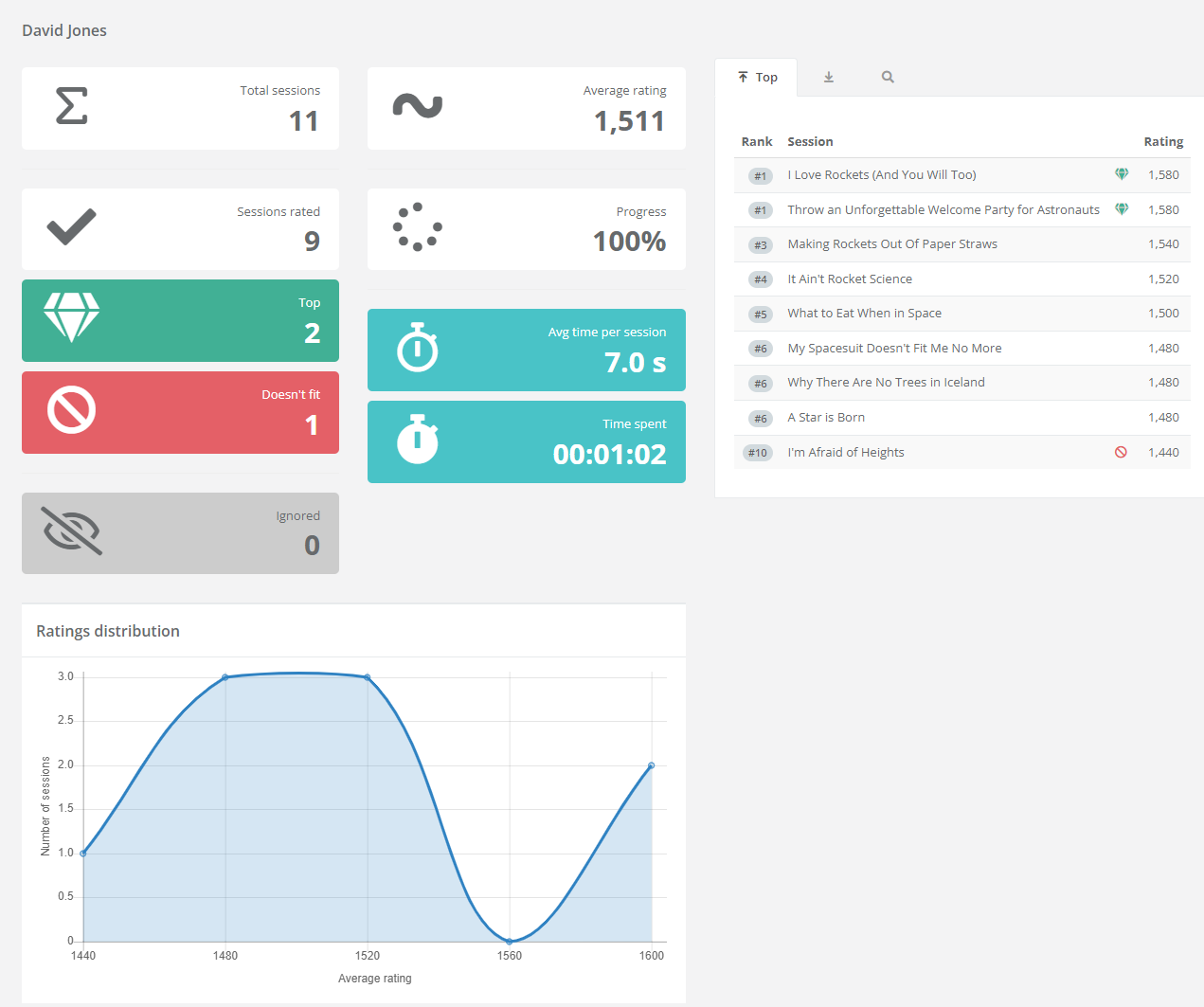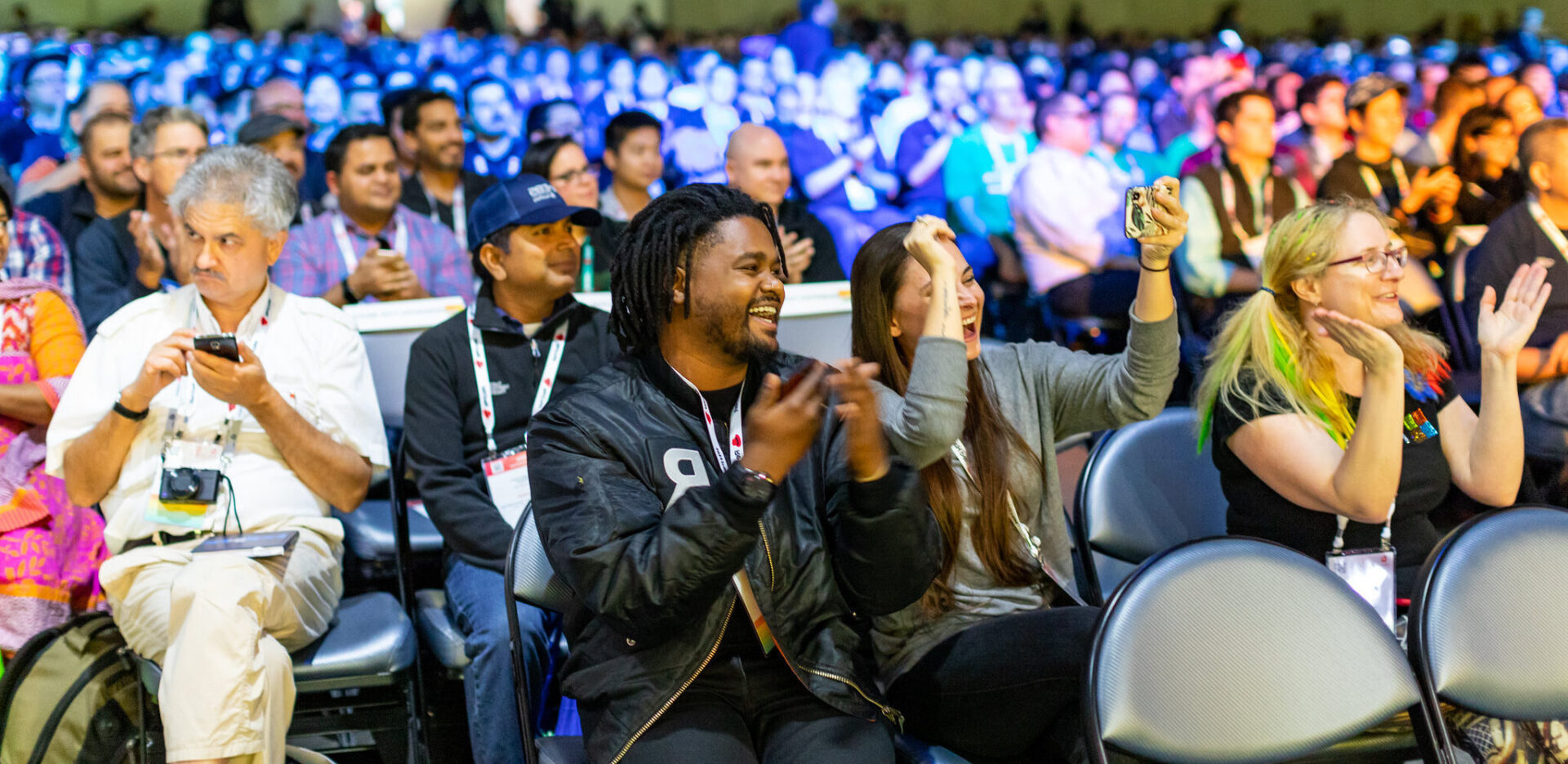OVERVIEW
Thank you in advance for your efforts as a reviewer for KubeDay Colombia 2024.
Below are the Scoring Guidelines and Best Practices to follow when reviewing your assigned proposals, as well as a guide on Sessionize’s Comparison Evaluation Mode. Please bookmark this page for future reference. If you have any questions, please feel free to reach out to the CNCF Content Team.
By participating as a reviewer, you agree to the CNCF Program Committee and Events Volunteer Guidelines.
COMPARISON EVALUATION MODE

When using the Comparison evaluation mode, your job is to compare and rank three sessions at a time. After examining the session’s details, you must rank them from best to worst. You don’t have to think about any other submitted sessions besides those you’re currently ranking. Upon completion, the sessions you’ve reviewed will be assigned a score and ranked from most-recommended to least-recommended.
You’re free to rank two or even all three sessions the same; in fact, that’s exactly what you should do in case you find them equally suitable for the event. However, doing so will prolong the evaluation process and slightly lower the final ranking quality.
Once you’re happy with your ranking, confirm it by clicking on the Submit your decision button.

If a certain session strikes you as particularly great or exceptionally unfit for the event, use the Strong opinion dropdown menu to express such views.
The Strong opinion options are:
- Top session – you consider this to be one of the best sessions submitted for the event
- Doesn’t fit at all – you think this session is completely unsuitable for the event
- No opinion (ignore) – you’re unable to rank this session competently or it poses a conflict of interest
Track your progress

During the evaluation process, a progress bar will be displayed at the top of the page, providing an indication of your progress. If, at any point, you need to pause the evaluation process, click on the Stop and continue later button located above the progress bar. Upon returning, you can resume the evaluation from where you left off.
Since the Comparison mode requires you to focus on nothing else but the three sessions you’re currently ranking, there are no downsides to pausing the evaluation at any given moment – even for a couple of days.
Complete the evaluation and view your stats

Once you’re done with the evaluation, you’ll automatically be redirected to the Evaluation page. By opening the evaluation plan you’ve just completed, you can view your statistics. Due to the nature of the Comparison mode, it isn’t possible to change your mind about any of the rankings; this is where the Comparison mode differentiates from other evaluation modes.
CNCF Program Committee + Event Volunteer Guidelines
Volunteers who help with the planning, organization, or production of a CNCF event are often seen as representatives of the CNCF community or CNCF project that the event relates to, and their actions can meaningfully impact participants’ experience and perception of the event. Therefore, and in the interest of fostering an open, positive, and welcoming environment for our community, it’s important that all event volunteers hold themselves to a high standard of professional conduct as described below.
These guidelines apply to a volunteer’s conduct and statements that relate to or could have an impact on any CNCF event that the volunteer helps plan, organize, select speakers for, or otherwise serve as a volunteer for. These guidelines apply to relevant conduct occurring before, during, and after the event, both within community spaces and outside such spaces (including statements from personal social media accounts), and to both virtual and physical events. In addition to these guidelines, event volunteers must also comply with The Linux Foundation Event Code of Conduct and the CNCF Code of Conduct.
Be professional and courteous
Event volunteers will:
Express feedback constructively, not destructively
The manner in which event volunteers communicate can have a large impact personally and professionally on others in the community. Event volunteers should strive to provide feedback or criticism relating to the event or any person or organization’s participation in the event in a constructive manner that supports others in learning, growing, and improving (e.g., offering suggestions for improvement). Event volunteers should avoid providing feedback in a destructive or demeaning manner (e.g., insulting or publicly shaming someone for their mistakes).
Be considerate when choosing communication channels
Event volunteers should be considerate in choosing channels for communicating feedback. Positive or neutral feedback may be communicated in any channel or medium. In contrast, criticism about any individual event participant, staff member, or volunteer should be communicated in one or more private channels (rather than publicly) to avoid causing unnecessary embarrassment. Criticism about an event that is not about specific individuals may be expressed privately or publicly, so long as it is expressed in a respectful, considerate, and professional manner.
TREAT SENSITIVE DATA CONFIDENTIALLY AND WITH RESPECT
Event volunteers may have access to details about proposed or accepted speakers and the contents of their talks. They are required to adhere to The Linux Foundation’s guidelines regarding use of this information and may only use it for the purpose of choosing talks for an event. They are prohibited from using this data for any other purpose, including but not limited to the following:
Changes to These Guidelines and Consequences for Noncompliance
The event organizers may update these guidelines from time to time, and will notify volunteers by email and via the CNCF Slack channels designated for event volunteers. However, any changes to these guidelines will not apply retroactively. If the Linux Foundation Events team determines that a volunteer has violated these guidelines or The Linux Foundation Event Code of Conduct, it may result in the volunteer’s immediate suspension or removal from any event-related volunteer positions they hold, including participation in event-related committees. If these guidelines are updated and a volunteer does not wish to agree, their participation in the event-related volunteer position will cease until such time as they do agree.
CNCF Program Committee + Event Volunteer Guidelines
CONTACT US
If you require any assistance reviewing proposals or have questions about the review process or any of the best practices we have suggested, please contact us for assistance.
